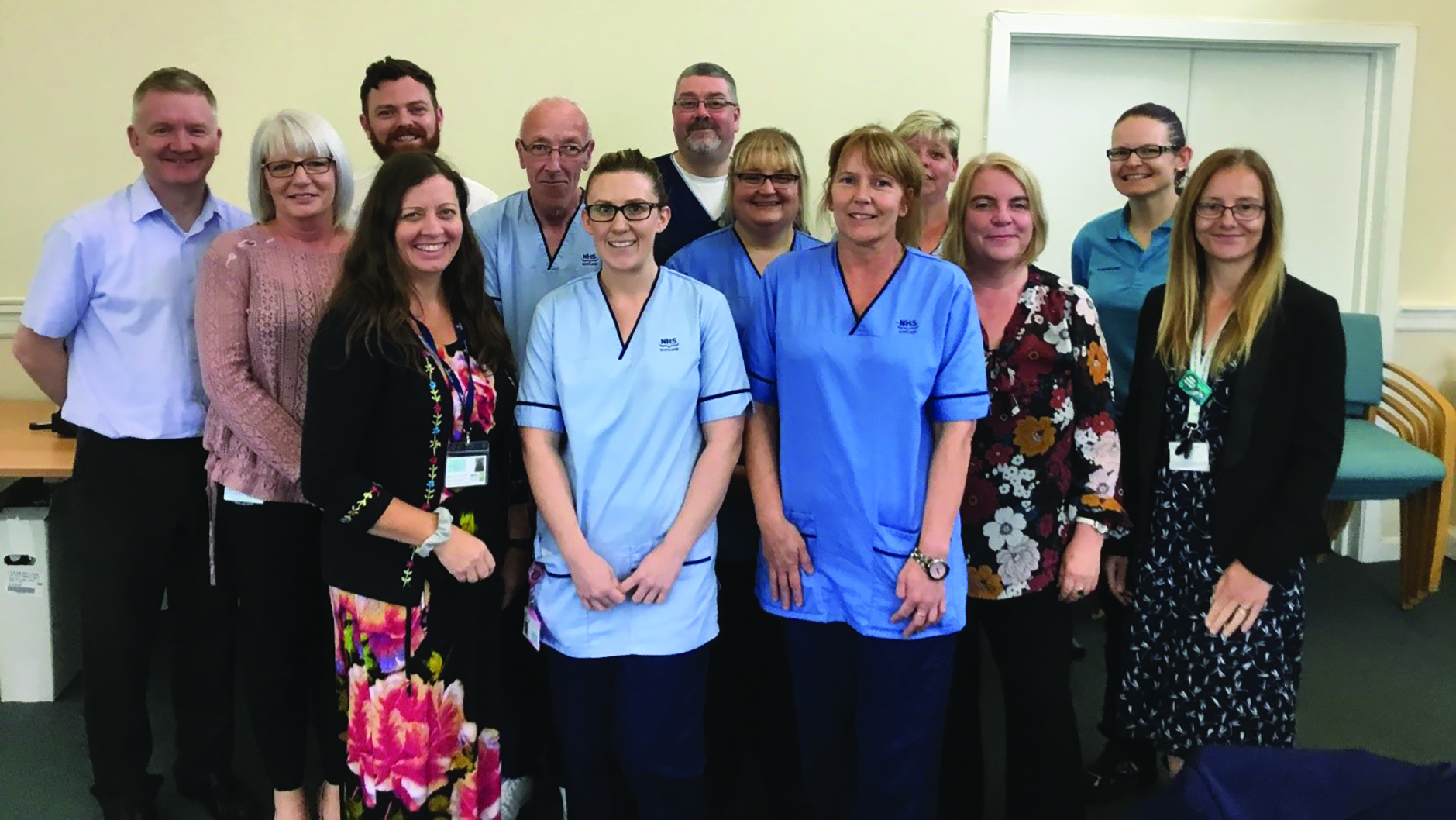Improving Practice in Specialist Dementia Units
Balmore Ward at Leverndale Hospital features in the latest Alzheimer Scotland: Dementia In
Scotland magazine. Here is an extract from the article.
Balmore ward is one of 60 specialist dementia care units in Scotland. A small number of these
units – including Balmore Ward – are Specialist Dementia Unit Demonstrator sites, which work
with Focus on Dementia to develop and roll out improved practice.
With access to appropriate care and support, the majority of people with dementia can live
and be cared for within the community. However, a small percentage of people with dementia
will have, at any given time, more complex needs which require specialist care in a dedicated
setting. These needs are most commonly linked to severe and persistent stress and distress,
as well as behaviour requiring specialist input that cannot be provided in most care settings,
even if additional support is provided. People with dementia who require specialist care are
often under 65, are still physically active and may have other acute mental health conditions
or physical health care needs.
Christine Murphy, Service Manager for Older People and Primary Care at Glasgow City Health
and Social Care Partnership (South Locality), explains that the decision to admit a patient to
Balmore Ward is not made lightly. She said; “When people first come to Balmore, it can often
be a very stressful time. It’s common for patients to come to us as emergency admissions
from their own home or another care setting.”
Balmore may be seen as the last opportunity to provide appropriate care for some of the most
vulnerable people with dementia. However, the multi-disciplinary ward team see it very much
as one of the many steps on a journey to improved wellbeing, one where the Balmore staff
can make a dramatic difference. In addition to care from medical staff, patients have access
to physiotherapy, psychological support, occupational therapy, dietetic support and speech
and language therapy. As of early 2017, patients at Balmore Ward now have access to their
own private, specially-landscaped garden. Christine described how invaluable this resource
has been. She said: “It took three and a half years and a lot of funding to give Balmore Ward
a garden. But the happiness of the patients who are able to go outside safely and enjoy the
sunshine is absolutely priceless.”
Ultimately, the aim of Balmore Ward is to support patients, their partners and their families so
that the person with dementia can move on to a more traditional care setting.
Jane Owen, one of the two Charge Nurses at Balmore Ward, gets her greatest sense of
satisfaction from seeing patients progress. She said: “A lot of our patients are here for
between three and six months. That means you get to know them a lot more than in your
usual hospital ward. Someone can arrive in really upsetting circumstances, but by getting to
know them and finding out what matters to them, what makes them happy or sad or content
or angry, we can make a big difference here. It means a lot to us to be able to make someone
more content and relaxed, and it means a lot to their families too.”

